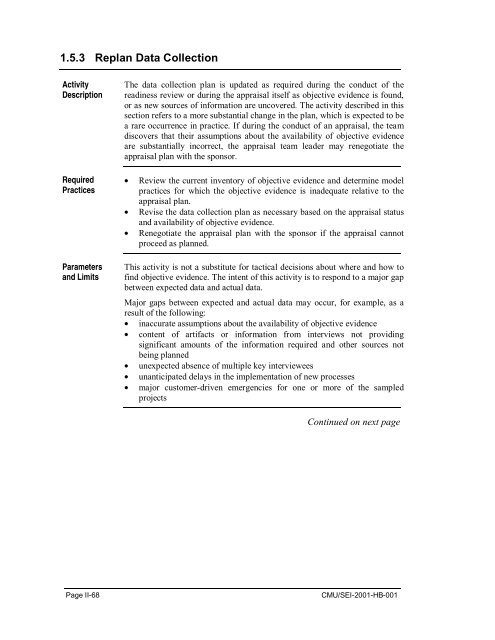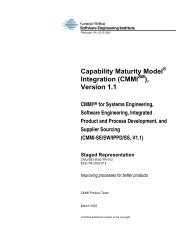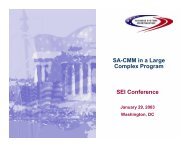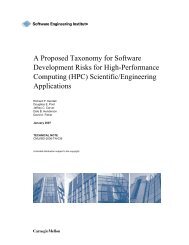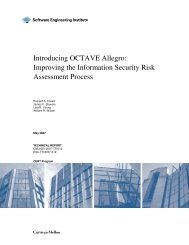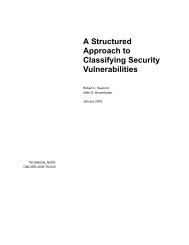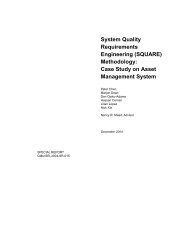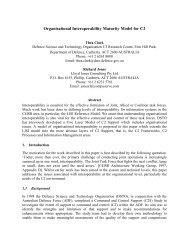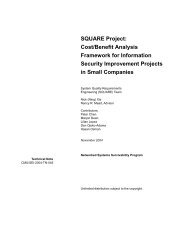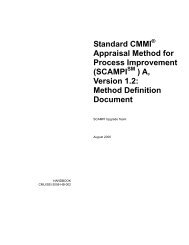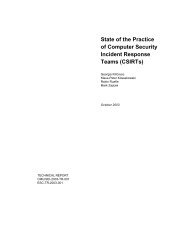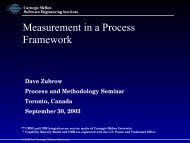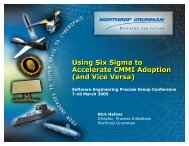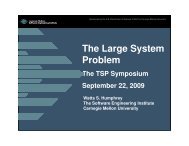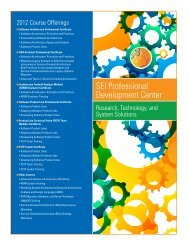Standard CMMI Appraisal Method for Process Improvement (SCAMPI)
Standard CMMI Appraisal Method for Process Improvement (SCAMPI)
Standard CMMI Appraisal Method for Process Improvement (SCAMPI)
Create successful ePaper yourself
Turn your PDF publications into a flip-book with our unique Google optimized e-Paper software.
1.5.3 Replan Data Collection<br />
Activity<br />
Description<br />
Required<br />
Practices<br />
Parameters<br />
and Limits<br />
The data collection plan is updated as required during the conduct of the<br />
readiness review or during the appraisal itself as objective evidence is found,<br />
or as new sources of in<strong>for</strong>mation are uncovered. The activity described in this<br />
section refers to a more substantial change in the plan, which is expected to be<br />
a rare occurrence in practice. If during the conduct of an appraisal, the team<br />
discovers that their assumptions about the availability of objective evidence<br />
are substantially incorrect, the appraisal team leader may renegotiate the<br />
appraisal plan with the sponsor.<br />
• Review the current inventory of objective evidence and determine model<br />
practices <strong>for</strong> which the objective evidence is inadequate relative to the<br />
appraisal plan.<br />
• Revise the data collection plan as necessary based on the appraisal status<br />
and availability of objective evidence.<br />
• Renegotiate the appraisal plan with the sponsor if the appraisal cannot<br />
proceed as planned.<br />
This activity is not a substitute <strong>for</strong> tactical decisions about where and how to<br />
find objective evidence. The intent of this activity is to respond to a major gap<br />
between expected data and actual data.<br />
Major gaps between expected and actual data may occur, <strong>for</strong> example, as a<br />
result of the following:<br />
• inaccurate assumptions about the availability of objective evidence<br />
• content of artifacts or in<strong>for</strong>mation from interviews not providing<br />
significant amounts of the in<strong>for</strong>mation required and other sources not<br />
being planned<br />
• unexpected absence of multiple key interviewees<br />
• unanticipated delays in the implementation of new processes<br />
• major customer-driven emergencies <strong>for</strong> one or more of the sampled<br />
projects<br />
Continued on next page<br />
Page II-68<br />
CMU/SEI-2001-HB-001


